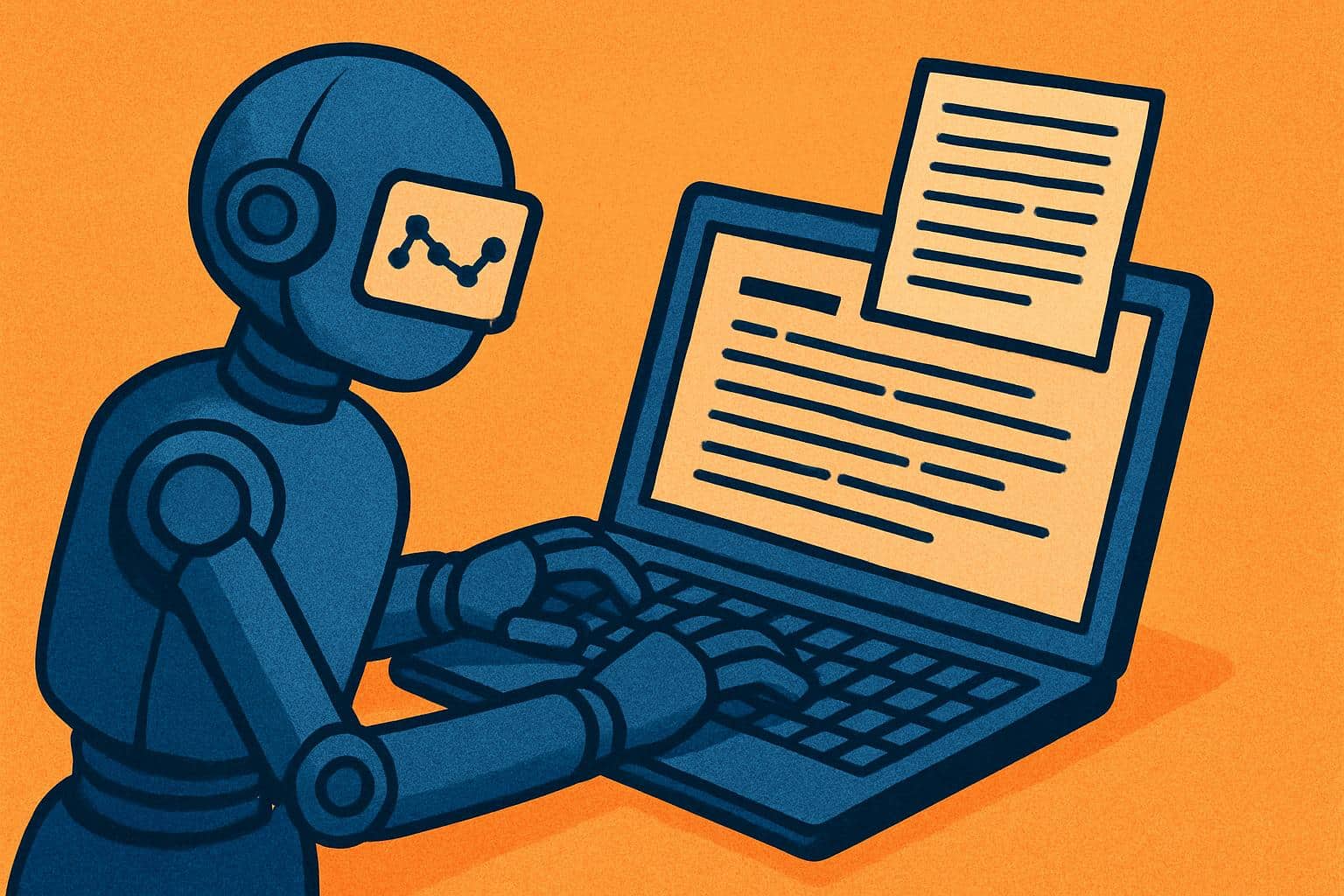You’re not imagining it. More and more of what you read online is written by machines, from machine-generated sports reports and earnings summaries to open-source poetry. New analysis from SEO firm Graphite suggests more than half of recently published articles exhibit AI generation signals, peaking at 55% at its highest.
Graphite’s researchers think the tide hasn’t stayed rising because AI-written posts on their own don’t do as well in search.

In another study, they found that automated text takes a long time to catch up with essential ranking signals, causing many publishers to cool their use or reintroduce humans into the process.
That creates a paradox. You might not be immediately greeted by AI-produced content at the top of your search results, but it’s quietly spread through product roundups, help-center articles, city and campus newsletters, real-estate listings and corporate blogs. The showers of supply are intense; surface visibility, selective.
Where AI writing hides across the web’s hidden corners
AI appears most pronounced in places optimized for speed and scale. Consider those affiliate pages comparing the “best” gadgets, recipe sites that inflate a simple technique with a dozen paragraphs, or portals that syndicate press releases. Many of these pages are sewn from AI drafts, then buffed a bit to get through the skim test.
There is also a shadowy “content supply chain.” One system drafts, another rewrites, a third translates and a human adds a sentence or two. It’s fresh by the time it hits your screen, but it’s a synthetic remix of the same inputs — a process some editors have more bluntly called synthetic laundering.
NewsGuard has identified over 1,000 websites that are publishing a high volume of AI-generated text with little human oversight. Others make believe they’re local news or niche magazines: They churn out content 24 hours a day under bylines that are often just figments, accompanied by stock photos.
How search engines treat AI-written content today
That’s not the theater wherein craft makers, desperate for visibility, are weighed against a systemic “epidemic” of affiliate marketing “scams,” unless it is determined by search platforms that they will focus on eradicating “scaled content abuse,” authored by human or model. Google, for one, has frequently highlighted factors related to experience, expertise, authorship transparency and originality. Content that doesn’t have those qualities tends to struggle.
Graphite data supports that viewpoint: AI-heavy pages are common, but they often come up short when rankings reward firsthand knowledge, sourcing and depth. Ironically, search companies are also using AI to summarize the web — while reducing its propensity to rank highly the very pages that these summaries might bring users to.
The growing trust gap between readers and AI news
Despite the flood, people generally think they would know if their news came from AI.

According to a November survey from Pew Research Center, just 2% of Americans say they commonly get news from AI, with roughly three-quarters saying they don’t do so at all. The gap is “exposure by proxy”: Readers encounter information shaped by AI through publishers, platforms and creators who don’t always reveal it.
That ambiguity fuels skepticism. According to Pew, those who do experience AI-curated news have relatively low trust—especially when articles make broad statements without named sources, on-the-record quotes or known authors.
Why detecting AI writing is hard—and getting harder
AI detectors remain unreliable. Leading AI labs and individual researchers caution that the current classifiers can misclassify human writing — especially non-native English speakers, they say — and are easily fooled with minimal editing. As models get better, stylometric tells get blurrier, and human-AI mixes stymie binary tests.
There are technological solutions, but they’re not uniform.
Watermarking is removable or disarmed as text passes over from one to the other. Standards for the provenance of content such as C2PA and Content Credentials, which are supported by companies like Adobe and Microsoft and several leading newsrooms, add tamper-evident metadata to assets, but it is inconsistently applied within the open web.
How to spot AI-written pages and what to do next
Red flags include vague and generic phrasing, confident but vague assertions, statistics that don’t seem to have a source, repetitive structures and sudden publishing surges with bare bylines. If a page smells like it was written to show up in search results, not to make sense of an idea, follow your instincts.
Cross-reference claims with primary sources, seek out author bios and editorial standards — and prefer outlets that reveal when and how they use A.I. A lot of well-known publishers are now publishing AI-use policies, and some feature Content Credentials labels to show how far a story’s information goes back.
Wider Implications For Creators And Brands
Content inflation is real. When anyone can spin up a thousand serviceable paragraphs, the value of an average article goes down. The antidote is differentiation — original reporting, expert analysis, proprietary data, clear accountability. Companies and publishers that combine artificial intelligence tools with good editorial judgment will outstrip providers chasing volume.
The upshot: You’re reading more A.I.-produced content than you probably realize. The web will become no less artificial, but it may become more transparent. If readers ask for that, then publishers who produce that level of work will earn the trust — and visibility — automated text can’t purchase.

